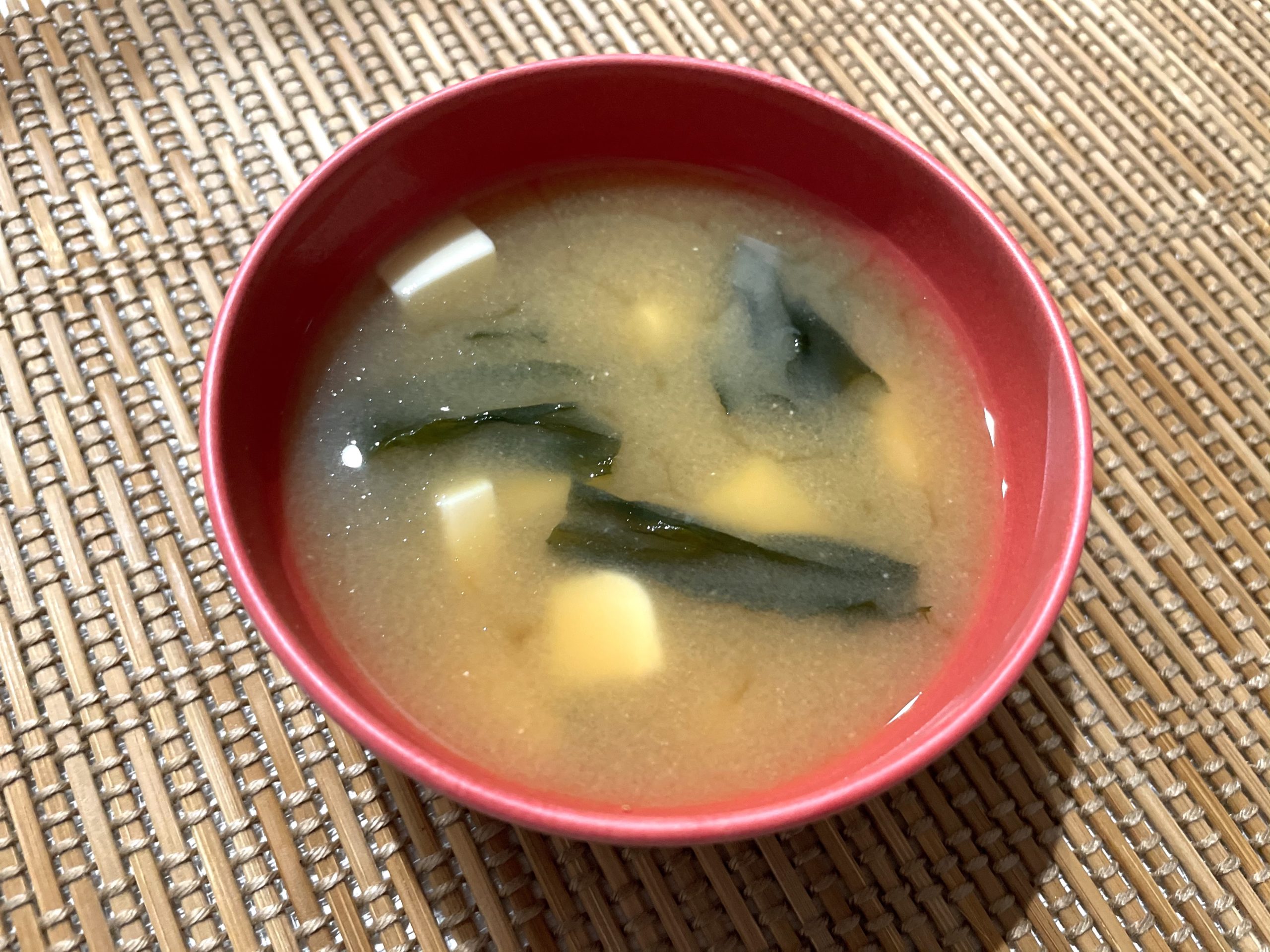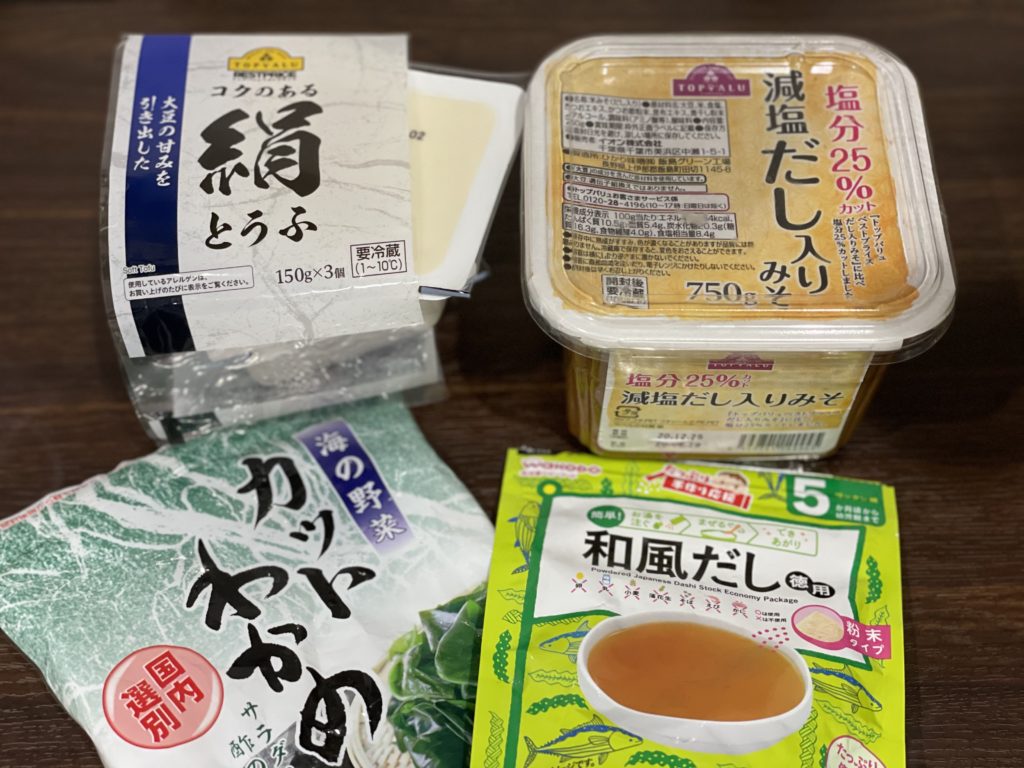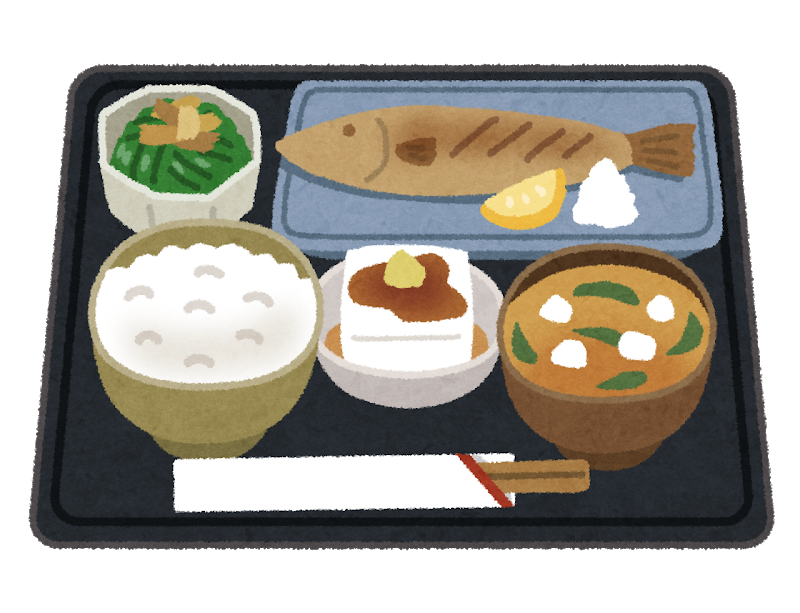Japanese Baby and Toddler Recipe: Miso Soup

Last Updated on May 1, 2024 by Kay
This post may contain affiliate links, meaning I may earn a small commission on any purchases through those links at zero additional cost to you. Whatever I make goes to keeping this website running and I am forever grateful for the support. See my Privacy Policy for more information.
Miso soup(味噌汁)is a staple side dish in Japanese cuisine, so it’s no surprise that it’s something that babies in Japan have as well! My daughter loves miso soup and it’s a great way to get a lot of nutrients into her. Miso paste contains amino acids, vitamins B and E, calcium, and fiber. The tofu in miso soup also provides protein while the wakame (seaweed) is packed with minerals.
Miso, however, is quite salty, so it’s mostly recommended that babies start eating it from 7 months and up. If you want to introduce your baby to miso soup, there’s a Japanese brand called ヒガシマル醤油 that offers a ready-made one that you can give babies from 5 months and up — all you need is boiled water.
The miso soup recipes I’m sharing below are split into two categories: babies 7 months and up and toddlers from 1 year and up. The ingredients and steps are very simple, making this a great go-to when you need a healthy side for your little one.
Disclosure: This post contains affiliate links, meaning that I may earn a commission (at no additional cost to you) if you make a purchase.
Miso Soup Recipe for Babies
This recipe is recommended for babies 7 months (中期) and up
Yield: 1 serving
Prep Time: <2 minutes
Cook Time: 3-5 minutes
Total time: under 10 minutes
Ingredients
- 120 ml of dashi
We use 和風だし by Wakodo, which is safe for babies 5 months and up. You can also use regular dashi stock powder if you want a stronger taste (add 1/4 of a teaspoon of powder to boiling water), or make the dashi from scratch yourself. - 20 grams of tofu
We use silken/soft tofu or 絹豆腐 (kinudoufu). - 1/4 teaspoon of miso paste
We use miso paste with less salt in it (塩分25%カット) from TOPVALU called 減塩だし入りみそ. Note that miso can sometimes have dashi in it — if the miso soup tastes too strong with the miso paste you’re using, we recommend cutting down the amount of powdered dashi you add or completely eliminating it and just using boiled water. - Optional: one teaspoon of spinach or komatsuna (Japanese mustard spinach)
Directions
- Bring 120 ml of water to a boil in a pot and add one tablespoon of 和風だし by Wakodo (or any dashi stock powder for babies) or 1/4 of a teaspoon of regular dashi stock powder.
- While the dashi is boiling, cut the tofu into small, bite-sized cubes. If you’re adding spinach or komatsuna, chop that up finely as well.
- If you’re using spinach or komatsuna, add that to the pot and cook for about 30 seconds.
- Add the tofu to the pot and simmer on low for around 15 seconds.
- Turn off the heat and add the miso paste. Stir until all of the miso paste has dissolved.
- Enjoy!
Miso Soup Recipe for Toddlers
This recipe is recommended for toddlers one year (パクパク期) and up
Yield: 1 serving
Prep Time: <2 minutes
Cook Time: 3-5 minutes
Total time: under 10 minutes
Ingredients
- 120 ml of dashi
We use 和風だし by Wakodo, which is safe for babies 5 months and up. You can also use regular dashi stock powder if you want a stronger taste (add 1/4 of a teaspoon of powder to boiling water), or make the dashi from scratch yourself. - 1/2 teaspoon of dry, cut wakame
You can also use fresh wakame if you like. - 1/4 of a block of tofu or about 30-40 grams
We use silken/soft tofu or 絹豆腐 (kinudoufu). - 1/2 teaspoon of miso paste
We use miso paste with less salt in it (塩分25%カット) from TOPVALU called 減塩だし入りみそ.
You can add up to 1 teaspoon of miso paste after your toddler gets used to the taste.

If you live in the US, you can buy some of the ingredients listed above on Amazon:
Directions
- Bring 120 ml of water to a boil in a pot and add one tablespoon of 和風だし by Wakodo (or any dashi stock powder for babies) or 1/4 of a teaspoon of regular dashi stock powder.
- While the dashi is boiling, cut the tofu into small, bite-sized cubes and cut the wakame as well if you feel like it might be too big for your child.
- Lower the heat to a simmer and add the wakame to the pot. Cook for about 15 seconds.
- Add the tofu to the pot and simmer for another 15 seconds.
- Turn off the heat and add the miso paste. Stir until all of the miso paste has dissolved.
- Enjoy!
Note:
∥ Try not to overboil the miso soup as the tofu and wakame will absorb a lot of the liquid.
∥ Miso soup does not freeze or refrigerate well, so to maintain the flavor, I advise against it.
∥ It’s perfectly acceptable (and encouraged!) for your child to drink straight from the bowl after they’ve eaten the tofu and wakame. Make sure to give them a bowl that’s an appropriate size to drink from, like these ones.
∥ As miso soup is typically a side dish, try to serve other things with it when your baby is around a year old, such as rice, a protein, and some veggies. In Japan, miso soup is typically placed at the front of the placemat to the right of rice (the most important dish is placed on the left). The other dishes are placed at the back.
I’m not the best when it comes to following this rule, though, and it seems like my husband isn’t either because he completely got the order wrong when I asked him (and he will now have to revoke his Japanese citizenship). But I’m going to try a bit harder to remember when I’m not so overwhelmed with feeding my hangry toddler!

How dishes are typically arranged in a Japanese set meal

